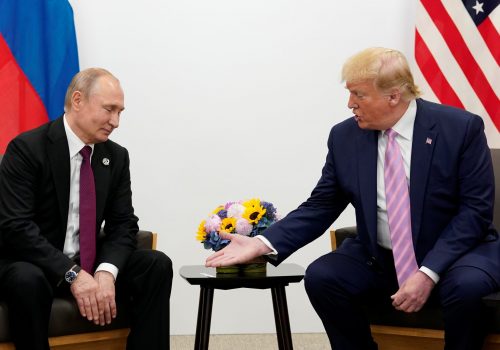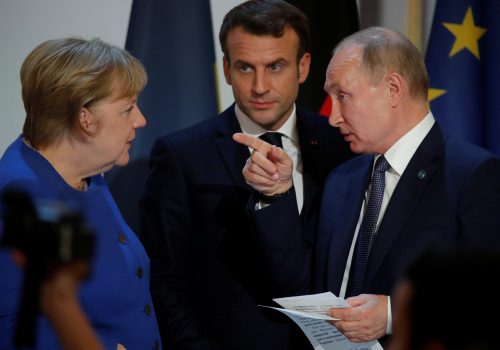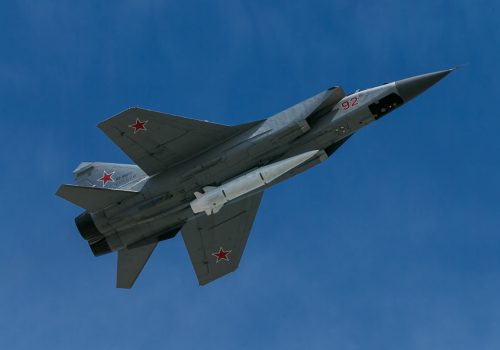For years, Russian President Vladimir Putin’s aggressive actions abroad have generated headlines and given him an outsized reputation as an international player. He has invaded Ukraine, changed de facto international borders, and flouted international law. US officials and lawmakers have imposed sanctions and taken other measures, but Russian behavior has not changed. Is US policy toward Moscow too confrontational? Is there a better way for the international community to deal with the challenges posed by Putin and Russia?
Ambassador John Herbst, director of the Atlantic Council’s Eurasia Center, and Ambassador Steven Pifer, William J. Perry Fellow at Stanford University’s Freeman Spogli Institute for International Studies, face off against George Beebe, vice president and director of studies at the Center for the National Interest, and Dr. Emma Ashford, research fellow at the Cato Institute. Susan Glasser, staff writer at the New Yorker, moderates the debate.
RELATED experts


The Eurasia Center’s mission is to promote policies that strengthen stability, democratic values, and prosperity in Eurasia, from Eastern Europe in the West to the Caucasus, Russia, and Central Asia in the East.




